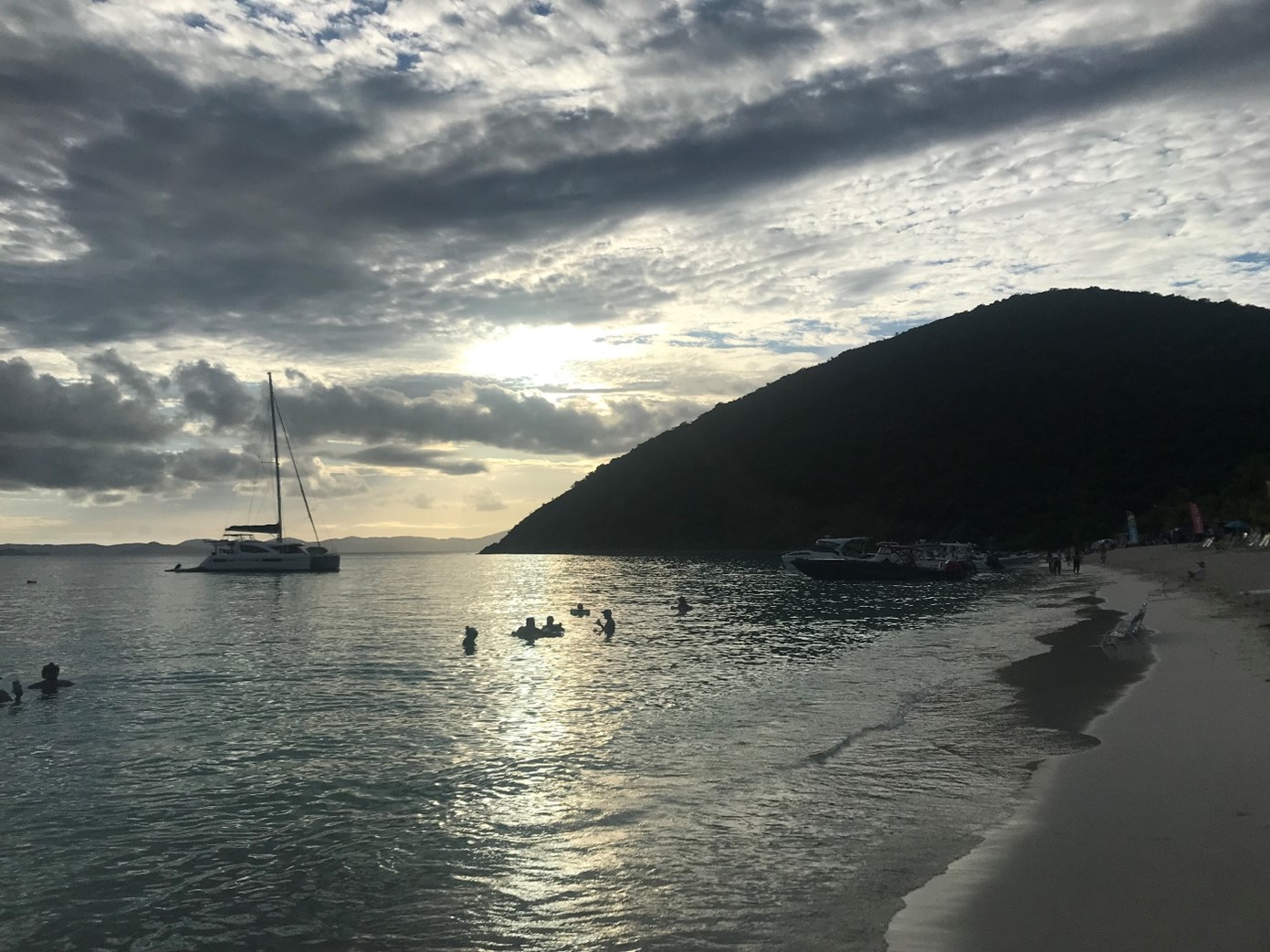
AIS. BPIRE. VHF 16. Pan-Pan.
113 deg. IMAT. DAN. HPMK.
Quick Clot. Cone of Silence. ITU.
Mycobacterium marinum. C-A-T.
Iridium Go. Vinegar/Vodka. 50:50.
Color code your bags.
Label your meds. Use your fly box.
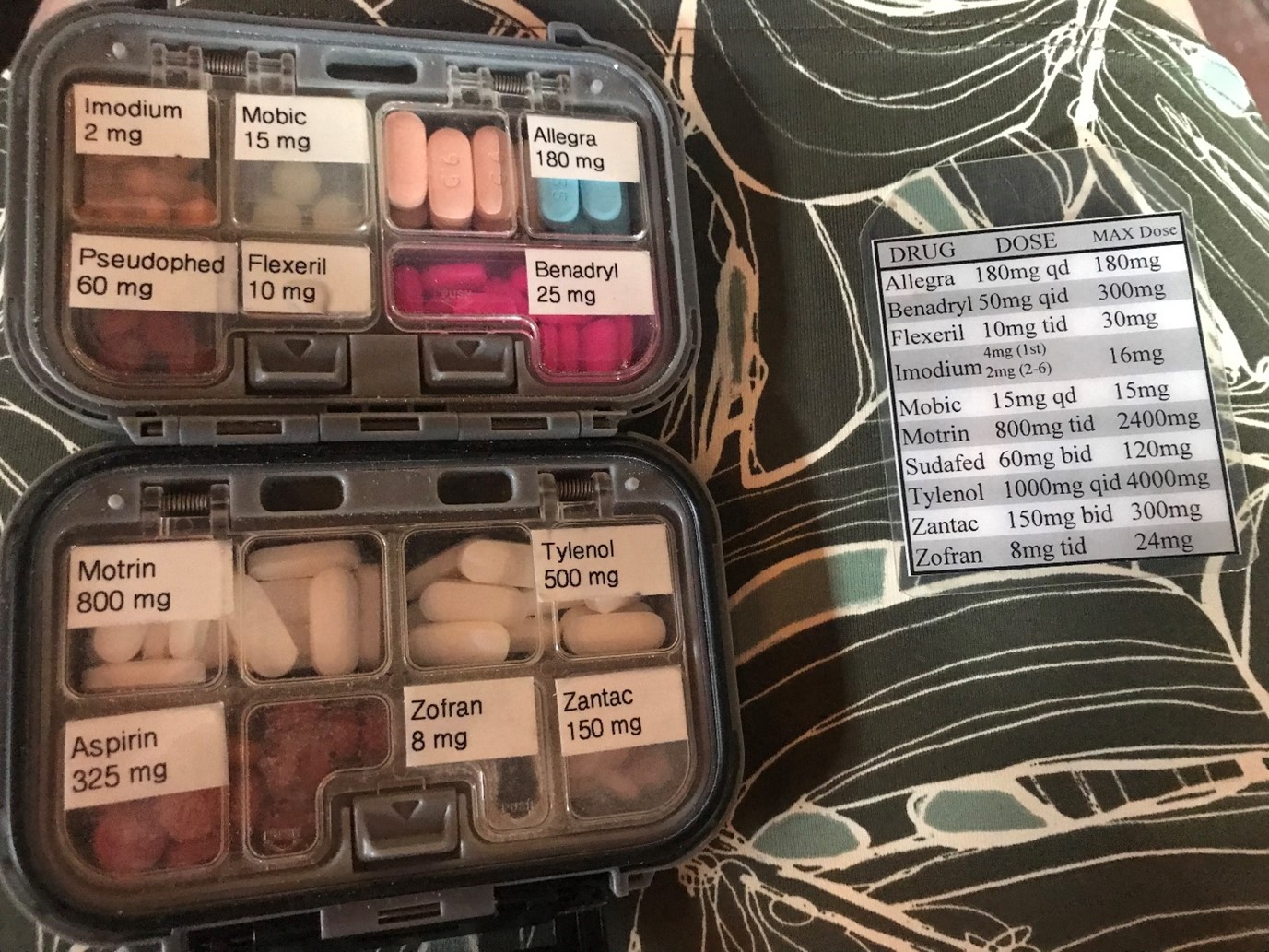
Know your team. Know your location. Know your weather.
Pack your own bag.
Have plans A-D, or at least an exit strategy.
Take batteries that work. And know how to turn it on.
Wear your sunscreen and reapply; SPF 30’s fine.
Don’t get seasick; or at least bring enough meds for you and me.
Land sickness might be worse. Don’t worry, it comes in waves.
Need a recipe for EMR Blues? WMS MedSail may be your antidote.
To start, jump on board “Knot Working” for a week.
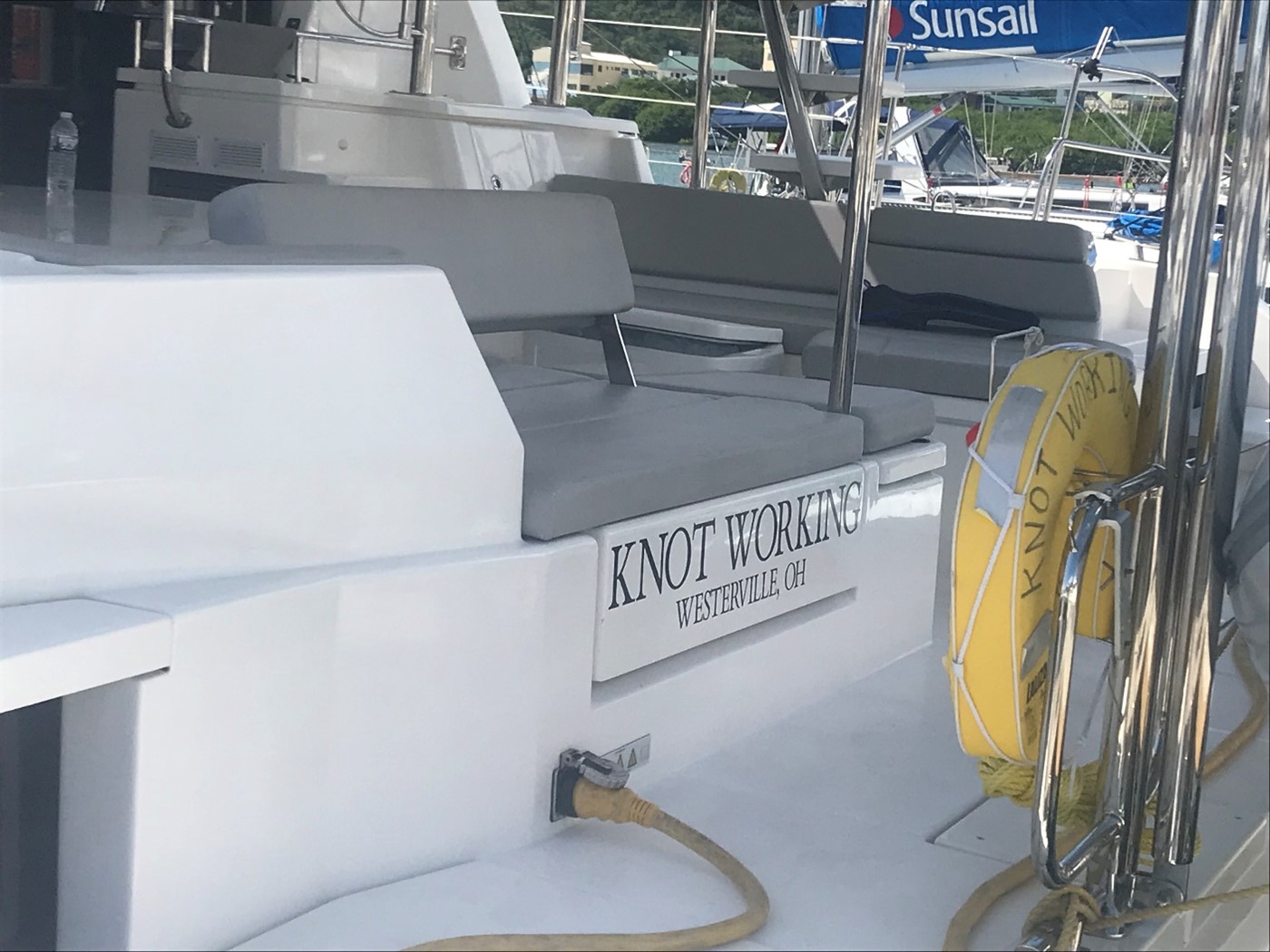
Get cozy with 9+ strangers. Meet up with ER and combat veterans.
Trauma PAs and pediatricians. A few FP docs, some residents.
Mix in some radiology and anesthesiology.
Don’t forget some advance practice nurses and maybe throw in a veterinarian to keep things lively.
Add some sunshine, late night storms, and heart to hearts on the fly bridge.
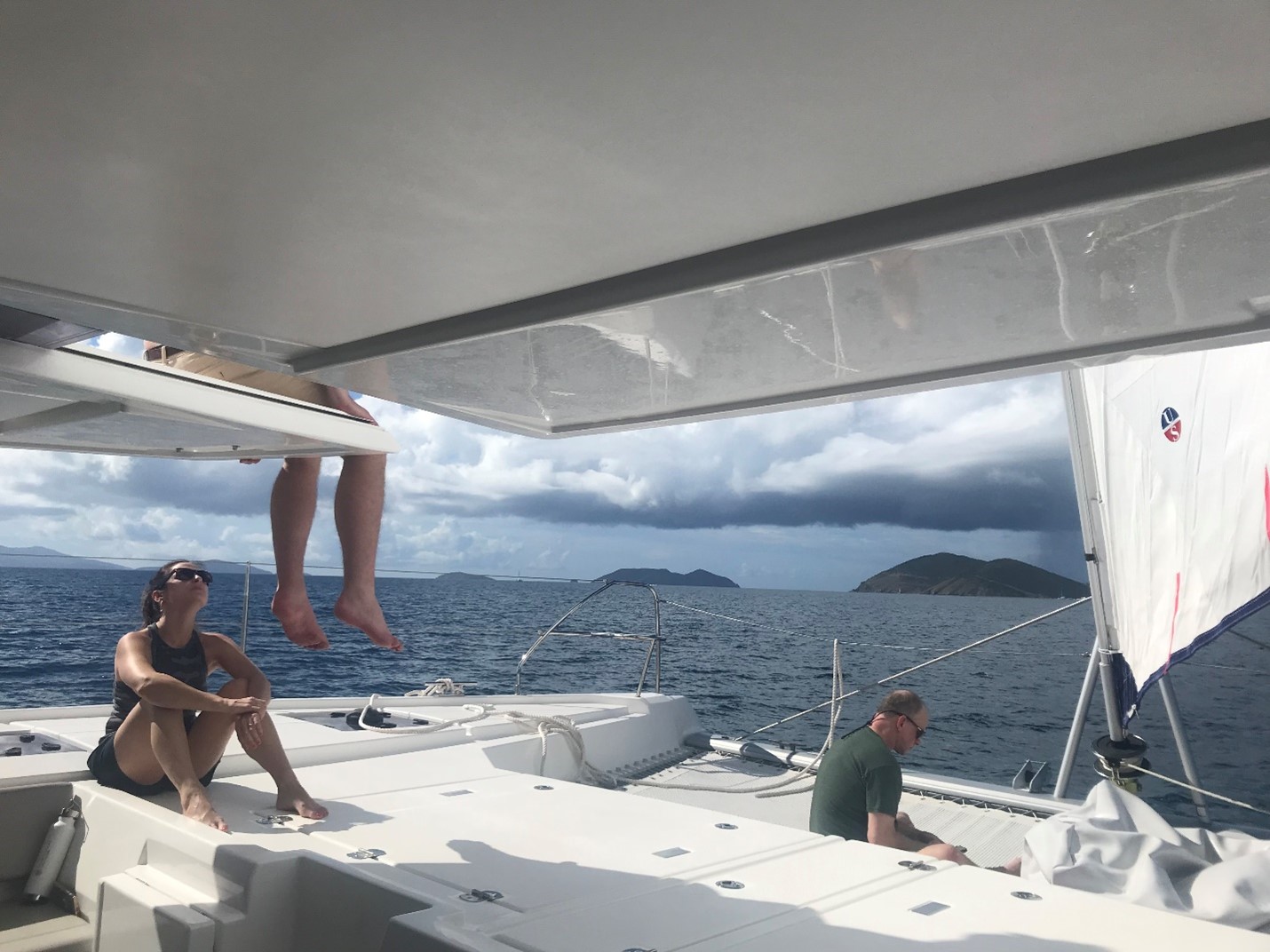
Lectures in the morning at sleepy eyed bars. Free poetry from the proprietors. And fresh air all day long.
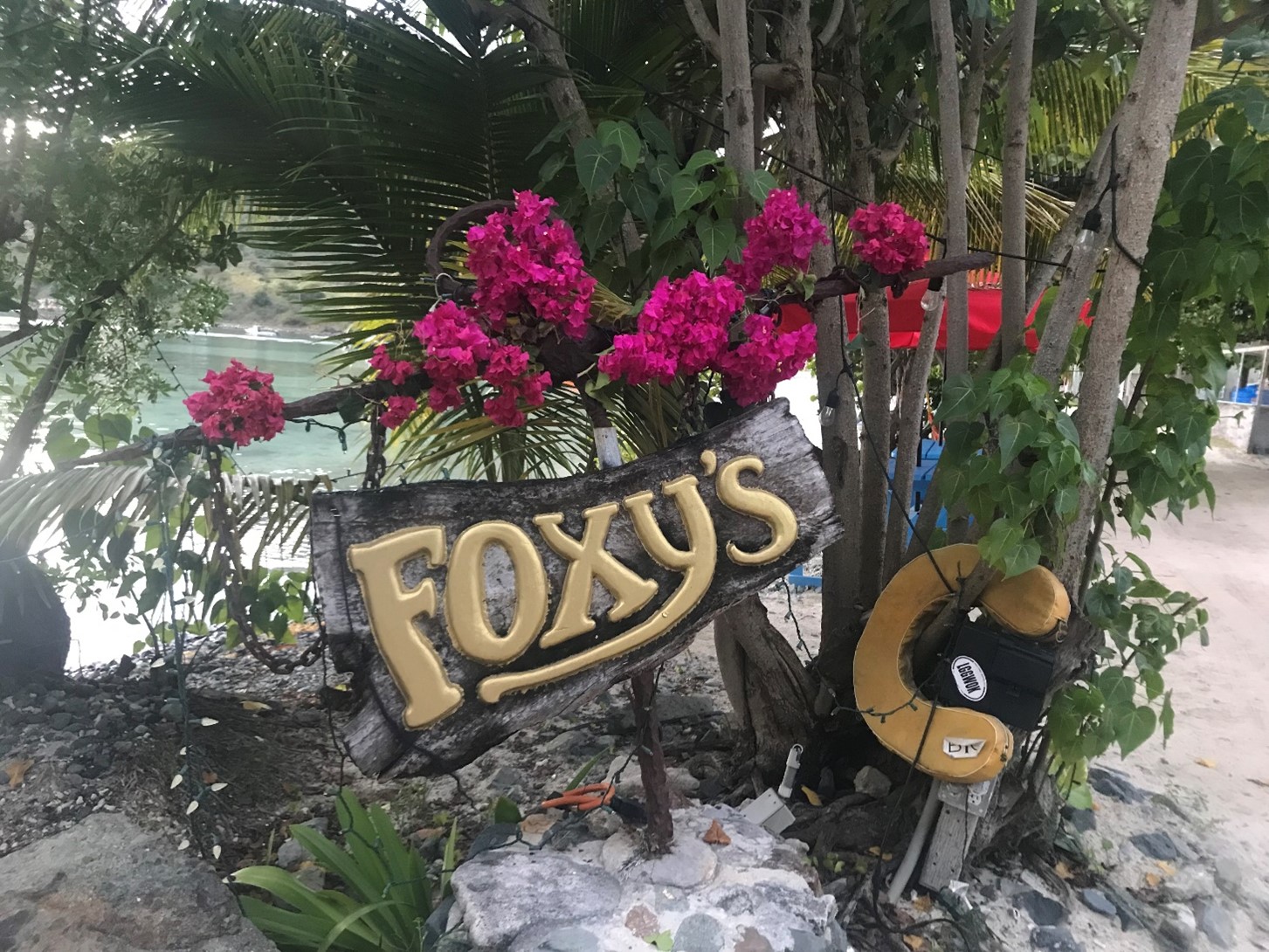
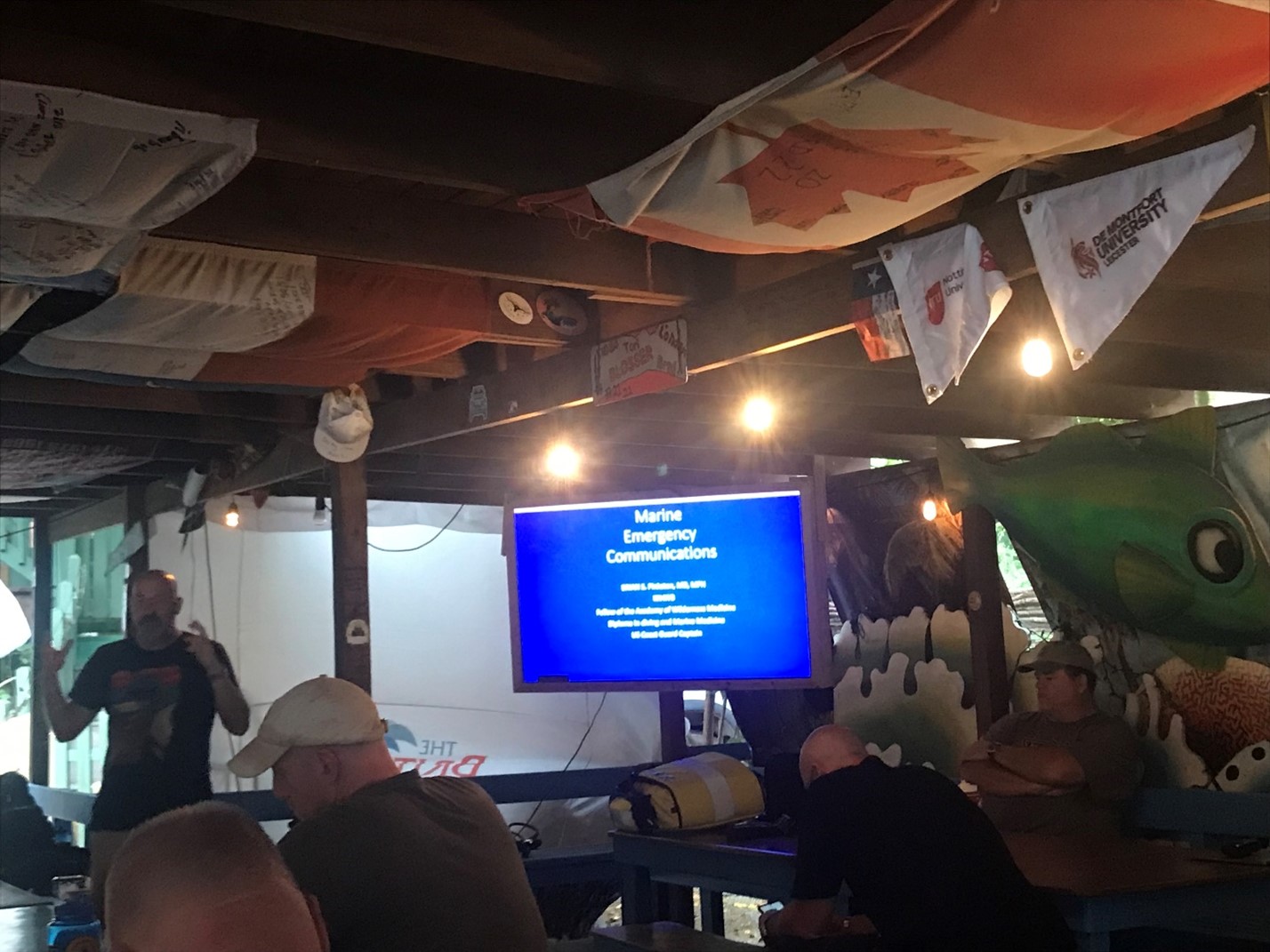
Another island, another day.
In-between go for a hike. Or snorkel with rays and a hawksbill turtle or two. Don’t touch the lionfish.
Scuba anyone? Visit with the Indians (local rock formation). Check your depth. With your ego. Safety first.
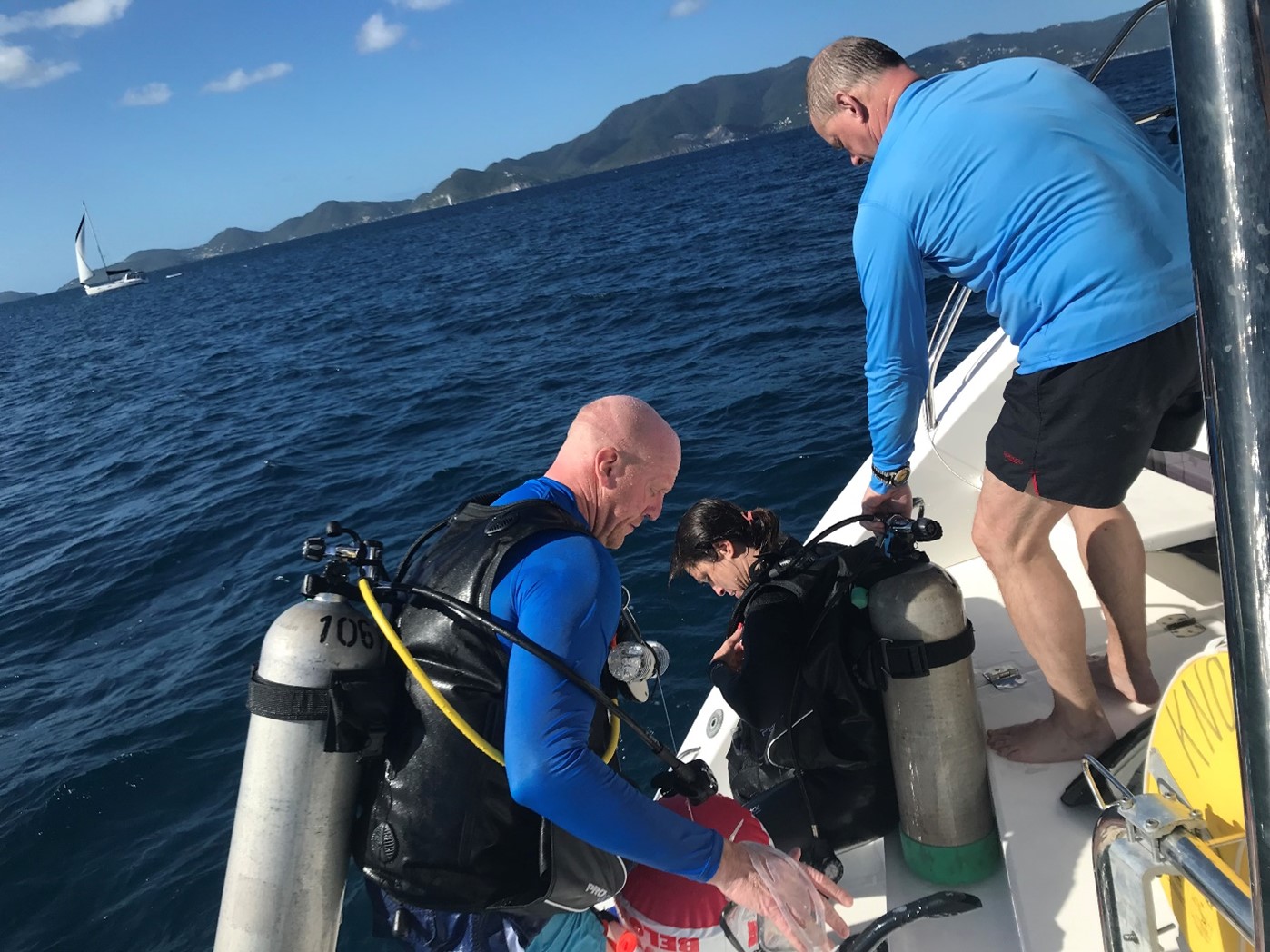
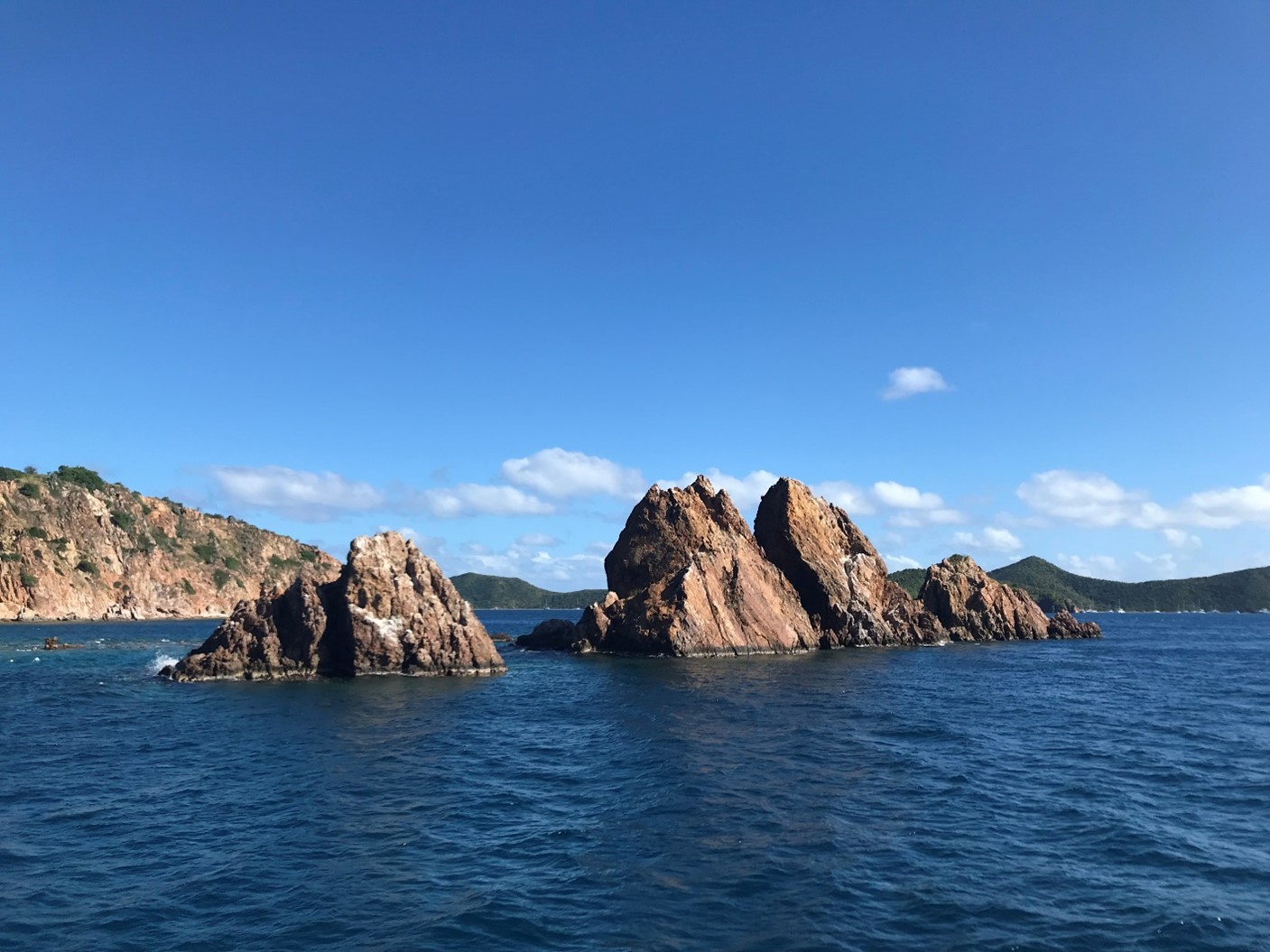
Jump off a barge with luminescent fish cheering you on. Add a little body paint just for giggles.
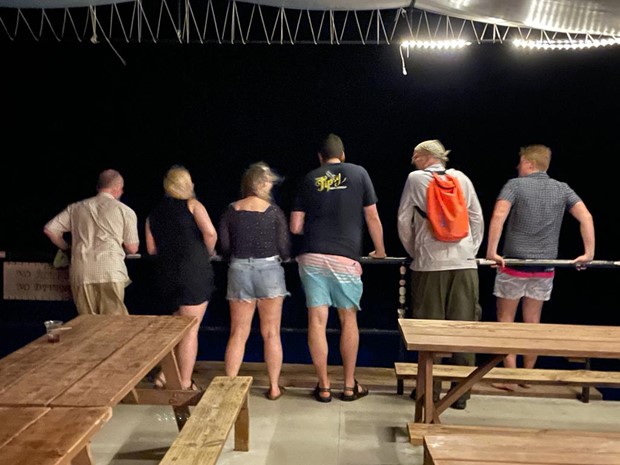
Photo by Eric Shaw
Different day, different story.
This time coffee and marine envenomation. Shark attacks. Toxidromes. Hypothermia.
Practice your knots. Rescue your colleagues. Wear your PFD.
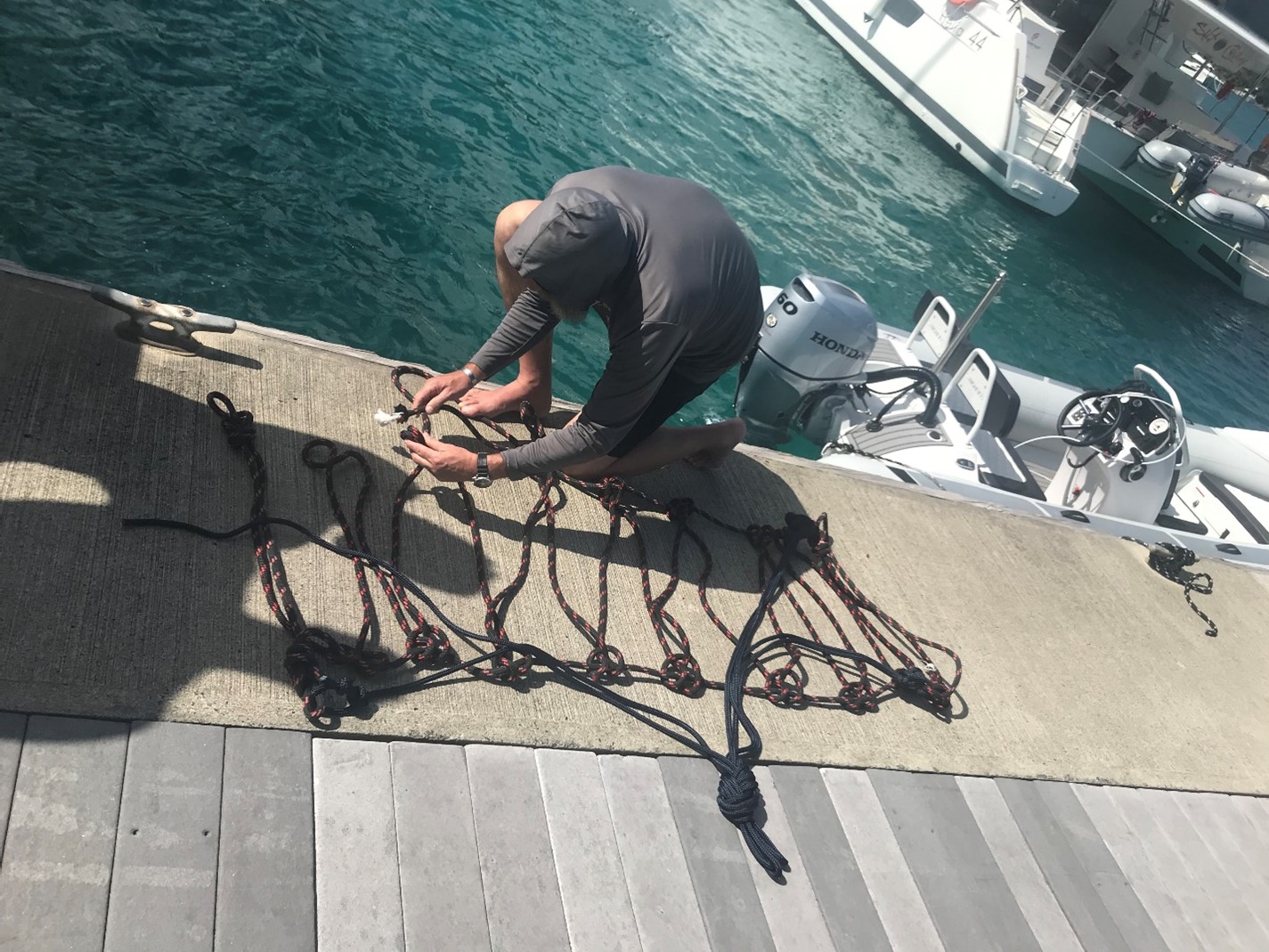
Don’t miss the dance party on the beach. More than a few stars and even better guitars.
Try not to be an adult for one, hot Caribbean minute.
Make sure your boat gets home. That night. And next year.
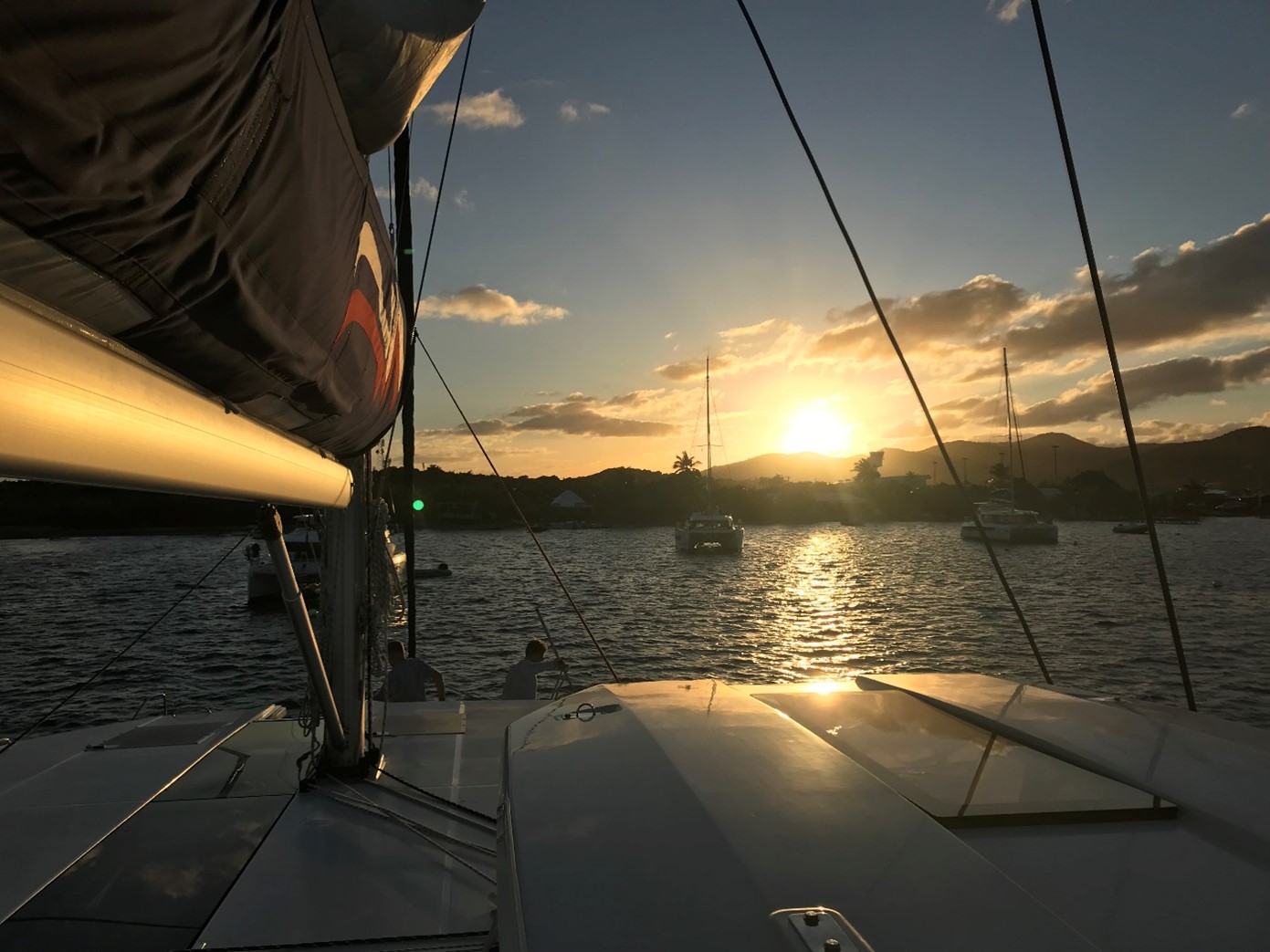
Too hot? Take to the Baths in Virgin Gorda. I’ll take mine on the rocks, please.
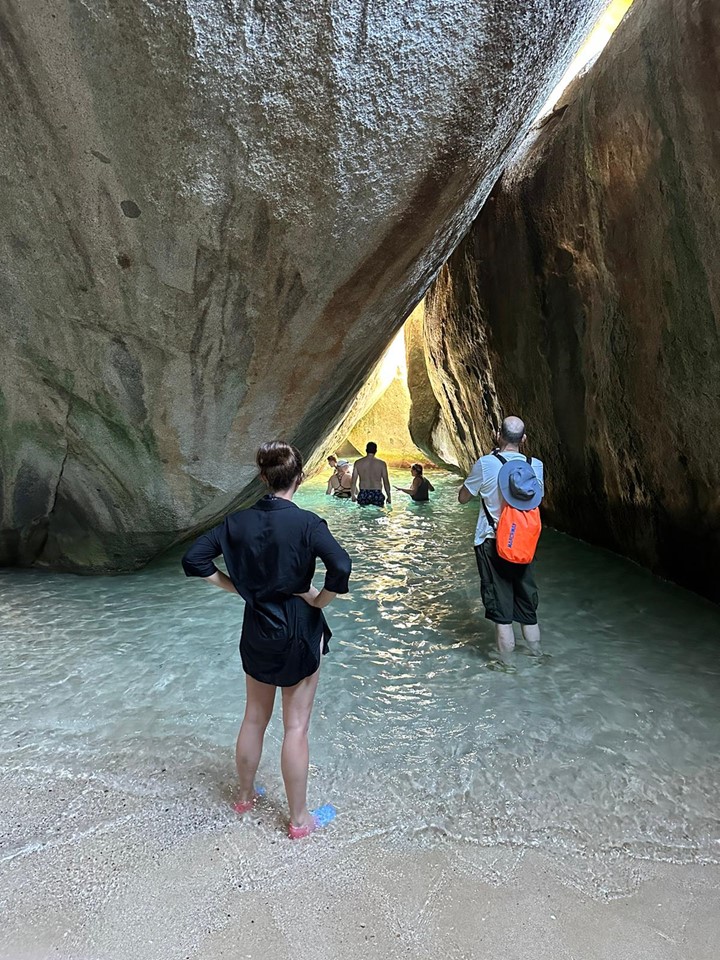
Photo by Chuck Dryden
Learn from a bunch of nerds from across the United States and the world.
Add in a healthy dose of adventure and good weather.
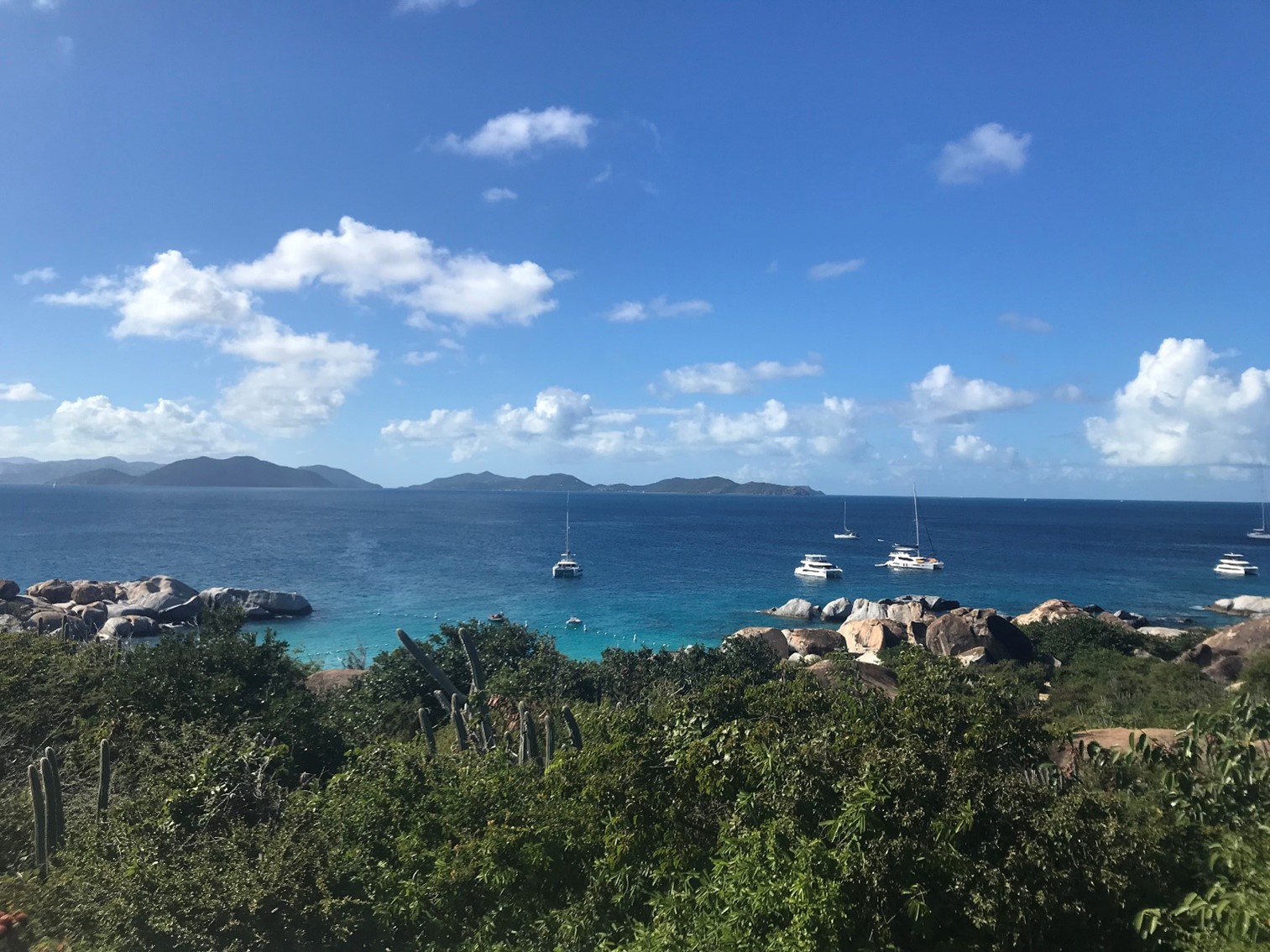
Round it out with some boating accident and mortality statistics and you’ve got a great recipe for survival- out in the sea or in our careers.
The result? Perhaps a crew of future ship medical officers, or at least sailors (including Sailing Virgins), who can manage on board medical emergencies with some degree of success.
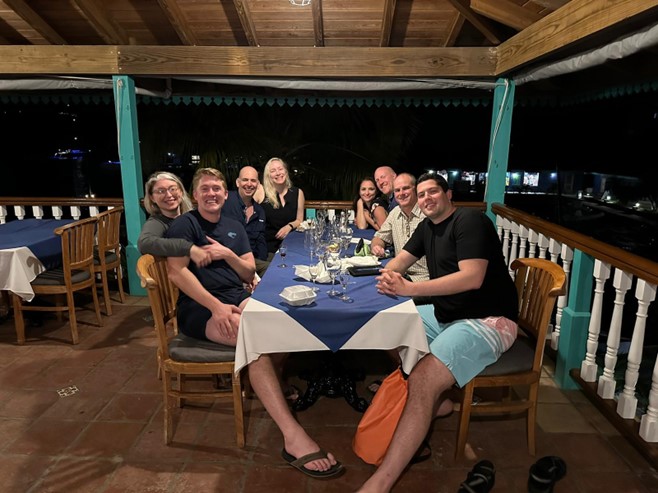
Photo courtesy of Chuck Dryden
Much gratitude to those who welcomed us onto their island homes of Tortola, Jost Van Dyke, Norman Island, Cooper Island and Virgin Gorda.
Many thanks to the pirates who herded these cool cats, patiently taught and re-taught, and managed not to lose anyone at sea. We owe you much peace, love and Zofran. And perhaps a painkiller or two.
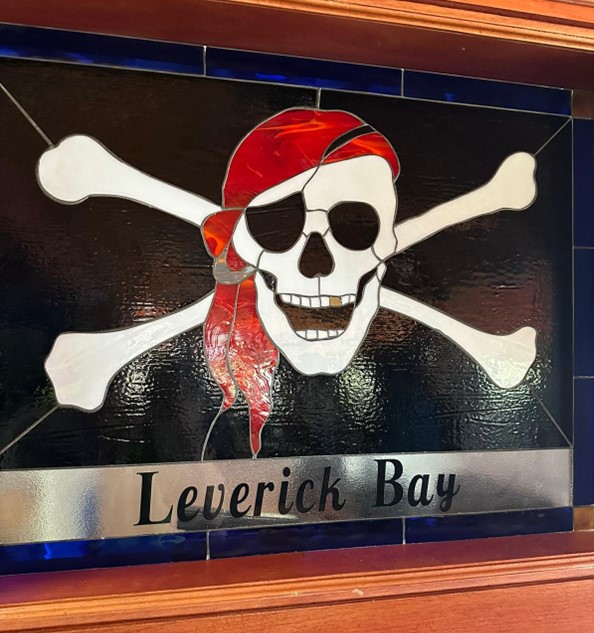
Photo by Chuck Dryden
Instructors:
Cheryl Lowry, MD, MPH, FAWM, FAsMA, DiMM, DiDDM. USCG OUPV Captain, AS Sailing Instructor, and PADI/NAUI Scuba instructor
Jim Fike, MD, FACP. Retired USAF Colonel, Adjunct Assistant Professor at Uniformed Service University
Brian Pinkston MD, MPH, FAWM, FAsMA, DiMM, DiDDM. USCG OUPV Captain, AS Sailing Instructor, and PADI/NAUI Scuba instructor